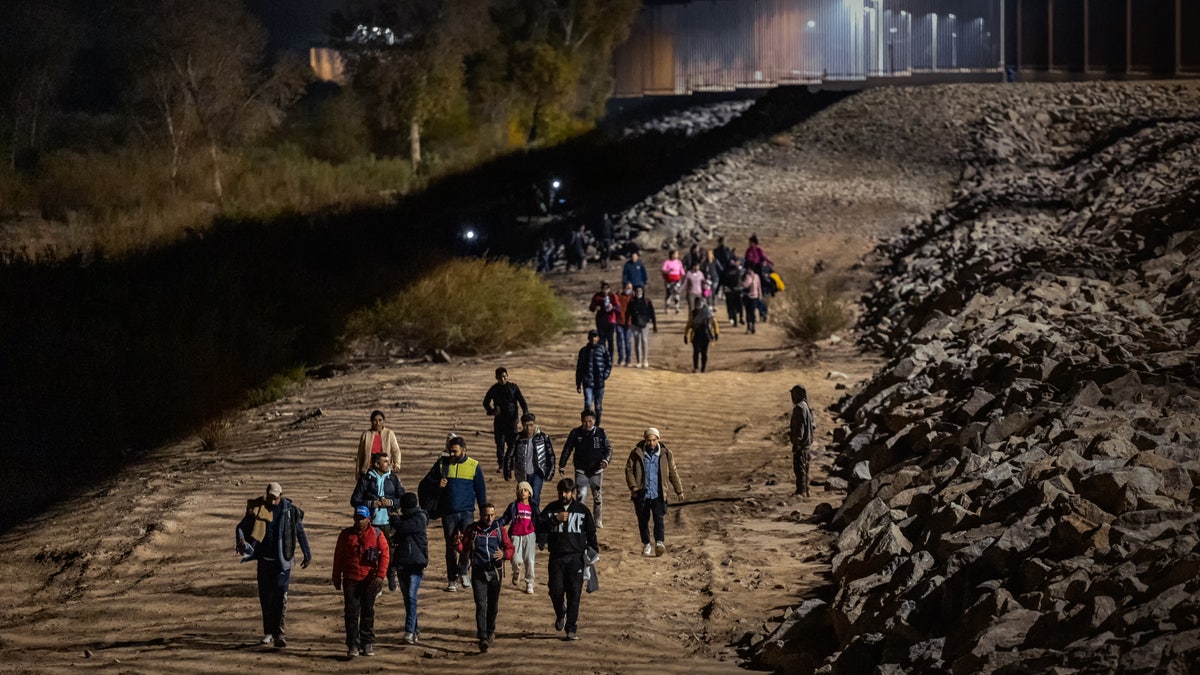Tucson, Arizona border chief testifies sector saw record-breaking gotaways
Fox News’ Bill Melugin on the latest at the southern border as House Republicans seek accountability for the border crisis
Illegal border crossings have spiked in July after falling to a two-year low in June, despite soaring temperatures across much of the U.S. southern border.
The U.S Customs and Border Protection's (CBP) Tucson sector recorded that daily crossings have soared to 1,900 in July, a 134% increase from June's number of 812 daily arrivals, according to CBS News, which cited unpublished agency figures.
Border agents have encountered the spike in migrants, which have included families with young children, traveling through the Arizona desert in large groups despite a heat wave in the region, with temperatures surpassing 110 degrees each day. Large groups traveling together are a typical indication that smugglers are involved in the operation, according to the report.
US BORDER PATROL APPREHENDS 10K MIGRANTS ILLEGALLY CROSSING INTO ARIZONA IN JUST A WEEK

Immigrants walk along the border barrier on their way to await processing by the U.S. Border Patrol on Dec. 30, 2022, in Yuma, Arizona. (Qian Weizhong/VCG via Getty Images)
Much of the spike in new crossings has been concentrated around Lukeville, Arizona, a remote region with limited resources to hold migrants. The rise in new arrivals has caused agents to resort to placing some migrant men outside in the extreme heat in order to avoid overcrowding the agency's station in Ajo, according to the report, with CBP telling CBS News that the Ajo facility "is not equipped to hold large numbers of migrants."
While CBP acknowledged the "significant increase" in migrants crossing the border in Arizona in a statement to CBS News, the agency stressed that it has placed migrants in shaded areas and is attempting to expedite their transfer away from the Arizona heat.

The Ajo Border Patrol Station in Arizona Saturday, August 5, 2023. (Fox News Digital)
In a statement to Fox News Digital, a CBP spokesperson said that "the Border Patrol has surged personnel and transportation resources to respond to the increase in encounters in the area – some of the hottest, most isolated, and dangerous areas of the southwest border – where individuals have been callously sent by smuggling organizations to walk for miles, often with little or no water."
CBP also noted that agents are working to ensure that migrants receive food, water and medical screenings upon their arrival and that there have not been any "major medical emergencies" or deaths related to heat in the Ajo region.

Much of the spike in new crossings has been concentrated around Lukeville, Arizona, a remote region with limited resources to hold migrants. (Fox News Digital)










































